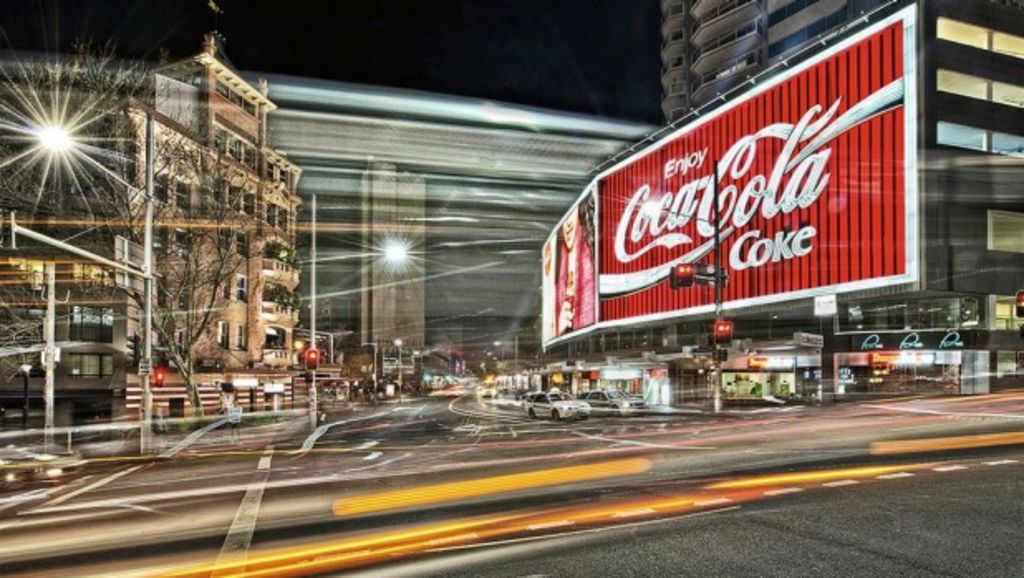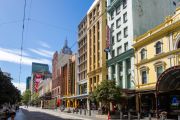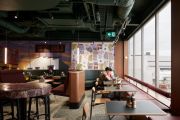
Kings Cross entertainment precinct is over, say property developers
Michael Koziol
Kings Cross will never again function as Sydney’s late-night entertainment precinct, property owners say, with residential developers snapping up promising land, while less desirable sites decline in value.
In the wake of the gentrification of the suburb, licensing restrictions and more recent lock out laws, the Valuer General has in recent weeks offered to reduce the land value of at least eight commercial properties in the area by up to $1.25 million, in response to land tax objections lodged by owners.
In documents seen by Fairfax Media, the office of Land and Property Information proposed land value reductions between five and 20 per cent on the properties, which include the Kings Cross Hotel, Carlisle House and Iguana Bar.
Separately, another property, the heritage-listed Minton House, was earlier in the year devalued by almost 35 per cent, from $10 million to $6.58 million.
Other owners are cashing in on offers from residential developers. Andrew Lazarus, owner of the now-closed Soho nightclub on Victoria Street, confirmed he was exchanging contracts to sell the site to an apartment developer.
“The Cross will never be an entertainment area again,” he told a parliamentary inquiry on Friday, unless governments deliberately intervene to stop its gentrification.
Liberal Democrat Senator David Leyonhjelm is conducting an inquiry into measures that limit personal choice “for the individual’s own good”. Friday’s hearing focused on Sydney’s 1.30am lockout in Kings Cross and the CBD, which business operators believe has contributed to the decline in Kings Cross patronage.
Business operators believe the laws were the last straw for the beleaguered Golden Mile, which has struggled for years against gentrification, the inquiry was told.
Property valuer Phil Rennie lodged land tax objections on behalf of 12 property owners in May, due to a collapse in commercial rents. Of the eight that were agreed by the LPI, the average reduction in land value was about 14 per cent. Mr Rennie said the owners would consider the LPI’s offers within the next 60 days.
Valuer General Simon Gilkes would not comment on the aforementioned 12 properties but said all objections were independently assessed.
But it is a different story for commercial properties conducive to residential redevelopment, which has been going gangbusters in the old red light district. Earlier this year, Chinese developer Greenland Group bought the Crest Hotel site, along with a pub in Parramatta, for $170 million. The Crest was sold by Iris Capital, which purchased it for $65 million in 2012. It has development approval for 139 apartments. The nearby Bourbon Hotel was also sold for mixed-use development.
Mr Rennie estimated many commercial rents in the Cross were down 30 to 50 per cent since 2008, owing to a number of factors. The financial crisis, small bars, smoking bans and licensing restrictions had all contributed, he said.
The Baird government has said the lock-out laws will be subject to a review in February.
Malcolm Gunning, president of the Real Estate Institute of NSW, sits on the Land Valuation Advisory Group, a committee of property industry groups and stakeholders that advises the Valuer General.
“The committee has recommended that strip be closely examined and that’s taking place,” he said. “Today, that strip is a basketcase. In that area, rents have dropped in some cases by more than half.”
Mr Gunning, whose own real estate agency is active in Kings Cross, said the area’s future would rely on higher floor space ratios for residential development.
“You’ll have expensive apartments with residential frontage and the whole nature of the strip will change.”
But Mr Rennie argued the recent land value reductions showed the Kings Cross apartment boom did not apply equally, because parts of the strip were still not desirable for residential development.
Last month, Fairfax Media reported that developers were urging the state government and the City of Sydney to increase height limits for residential towers in the area. Chief executive of Iris Capital, Sam Arnaout, suggested the strip could become “like a New York Manhattan”.
A City of Sydney spokesman said the council was not reviewing floor space ratios for Kings Cross.
Friday’s inquiry also heard that 30 businesses in the Cross had closed since the lockout was introduced in February last year, including a dozen nightclubs and bars. Alcohol-related violence had declined by 32 per cent, although Bureau of Crime Statistics director Don Weatherburn said it was “entirely possible” this was due to the reduced patronage in the Cross.
Mr Leyonhjelm, a supporter of gun rights and opponent of mandatory bicycle helmets, was in favour of retaining the old red light district. “If we’re going to have a naughty suburb, Kings Cross ought to be our naughty suburb,” he said.
Labor Senator Sam Dastyari, who also sits on the inquiry, observed that “no matter what happens in Sydney, the property developers always win”.










